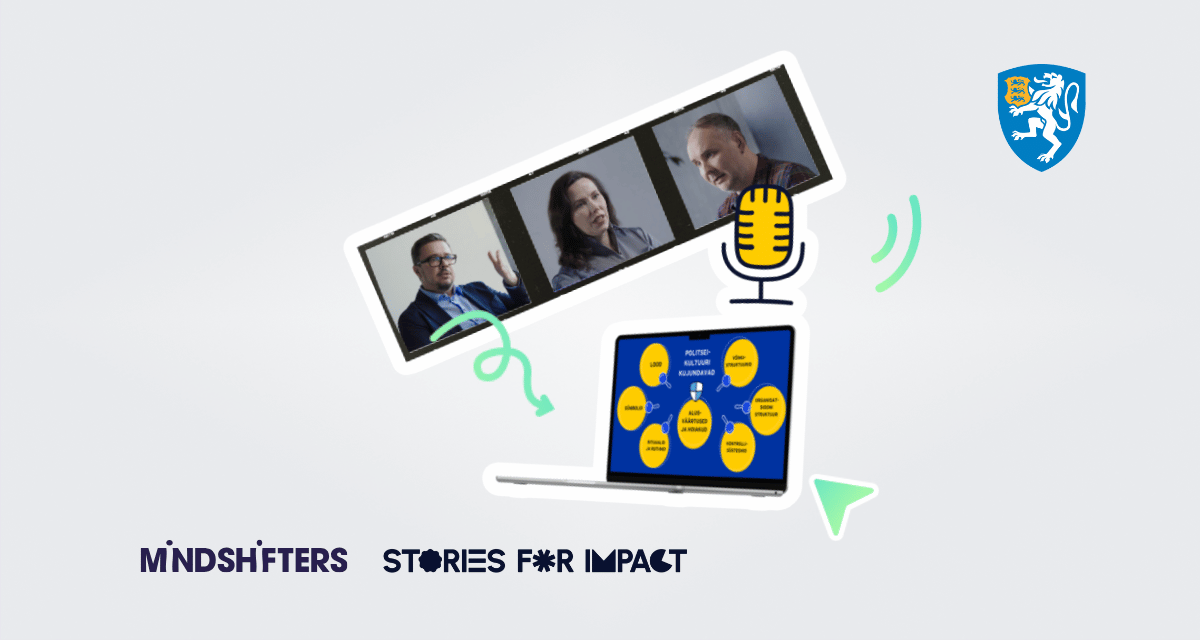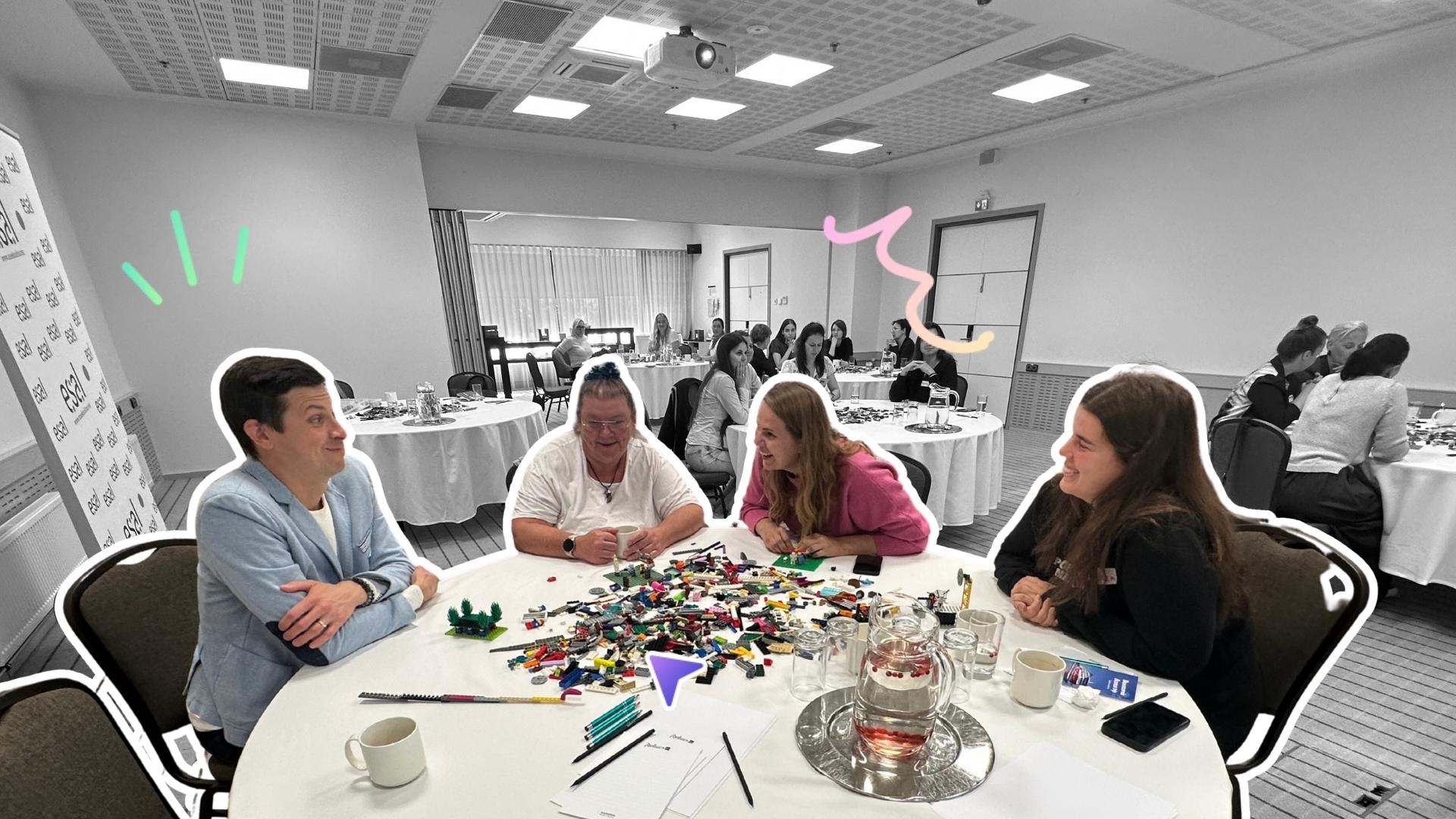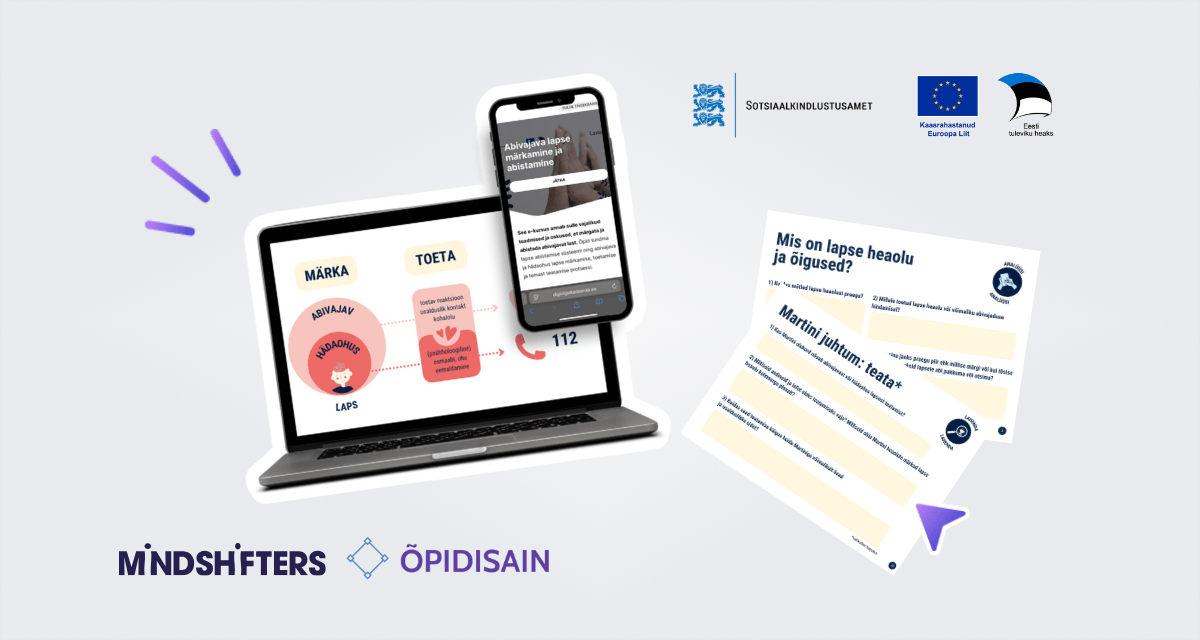Tutvu tiimiga: viis küsimust õppimise kohta
Me loodame, et Mindshiftersi kogukond kasvab ja areneb pidevalt. Aga tähtis on aeg-ajalt ka peatuda, et oma teekonda jagada ja jäädvustada, kas pole?
Küsisime endilt viis küsimust meie teekonna kohta täiskasvanuhariduse valdkonnas. Siin on meie vastused:
1. Mis tähistas teie esimest sammu täiskasvanuhariduses? Kuidas jõudsite sellesse valdkonda?
Helena: Haridusvaldkond ei olnud mu esialgne plaan. Pärast keskkooli tahtsin minna õppima psühholoogiat, et töötada nõustajana. Ma ei teadnud, et mu teekond võtab hoopis uue suuna, kui 2013. aastal esimest korda koolitama juhtusin. Mõistsin, et psühholoogia hõlmab palju enamat kui nõustamine – see tähendab ka õppimise ja õpetamise mõistmist. Hakkasin juhtima projekte, mille eesmärk oli muuta seda, kuidas me õppimisse suhtume – kuidas muuta kohustus võimaluseks või lausa kireks.
Jaanika: Mäletan oma esimest vestlust Tallinna Ülikooli andragoogika erialale sisseastumisel. Minult küsiti, miks ma noore inimesena tahan sellist eriala õppida. Vastasin, et kirjutasin keskkooli lõpukirjandi pealkirjaga „Elu on lõpetamata jääv kool“. Tagantjärele tundub, et see kirjandiks juhuslikult valitud pealkiri ennustas kogu minu edasist karjääriteed.
2. Mis sütitas teis soovi panna tavapärased täiskasvanuhariduse meetodid proovile ja leida neile uudseid alternatiive?
Helena: Minus arenes soov liikuda kaugemale tavapärasest loengu ja praktikumi vormist. Emotsioonid mängivad õppimises tohutut rolli. Tahtsin luua keskkondi, mis on turvalised, kutsuvad ja inspireerivad.
Olles tulnud kolmandast sektorist, kus mitteformaalne õpe oli norm, nägin suurt lünka avalikus ja erasektoris.
Kuulsin korduvalt: „Teeme midagi, mis ei ole nii igav, midagi interaktiivsemat!“ See pani mind mõistma, et noortevaldkonnas töötades olin elanud justkui täiesti teises maailmas.
Mul on bakalaureusekraad psühholoogias ja sotsiaaltöös. Hiljem olen end täiendanud EBS Executive Coaching’u, NLP, LEGO® SERIOUS PLAY® ja inimkeskse süsteemimõtlemise alal. Kõik need on loonud väga mõnusa oskuste kombinatsiooni, mis aitab mul mõista inimeste vajadusi ja leida sobivaid lahendusi.

Jaanika: Minu puhul on see olnud üsna tavaline sammsammuline protsess: kõigepealt õppisin tundma normi ja siis selle piire nihutama, et jõuda paremate tulemusteni.
Minu teekond andragoogika ja kognitiivsemiootika magistriõppes süvendas minus arusaamist õppimisest kui kognitiivsest, aga ka sotsiaalsest protsessist.
Samal ajal sai minu tugevuseks visuaalne mõtlemine ja lihtsustamine – see aitas mul kujundada paremini ligipääsetavat õppesisu.
Õpingute ja töökogemuse (koolitus- ja arendusspetsialisti ning -juhina) ühendamine on andnud mulle rikkaliku teadmistepagasi, mida nüüd Mindshiftersis õpilahenduste loomisel rakendan.
3. Mis teid õppimise juures kõige rohkem paelub?
Helena: Just see, kui suurt pingutust see protsess tegelikult nõuab!
Õppimine pole lihtne – enamasti on see väga ebamugav. See eeldab enesele tunnistamist „Ma ei tea!” ja see võib olla keeruline. Samas ei meeldi mulle miski rohkem kui üks korralik katsumus. Ja midagi uut õppida on tohutu katsumus. See tekitab palju küsimusi – ja me teame, et aju ei talu vastamata küsimusi. Nii ta siis küsib ja otsib edasi!
Lisaks küsimuste esitamisele meeldib mulle õpivõimaluste loomine, sest see lubab mul olla loominguline. See sunnib loovalt mõtlema, pakkuma lahendusi, mis panevad inimesi naeratama, annavad edutunde ja samas loovad uusi seoseid. Kes siis ei tahaks õppida?
Jaanika: Õppimine on kõikjal ja see on ebamugav – see on kasvu märk.
Kuigi meid on õpetatud seostama õppimist kooli või konkreetsete eluetappidega (nt uue töökoha alustamine või karjäärivahetus), õpime tegelikult pidevalt.
Mõtle näiteks
- reisimisele või teise riiki kolimisele
- uue keele õppimisele (muide, organisatsioonikultuur on ka omaette keel!)
- hobi alustamisele
- pere loomisele
- mõistmisele, kuidas meie minevik mõjutab olevikku ja tulevikku
- jne
Minu silmis viitab õppimisele just ebamugavustunne – see nõuab uskumuste ja käitumismustrite muutmist, kohanemisvõimet. See on keeruline, kuid võimas teekond.
4. Milliseid unikaalseid oskusi või vaatenurki te kumbki Mindshiftersisse toote?
Helena: Minu tugevus on holistiline, süsteemne mõtlemine. Juhindun sellest, kui püüan õppijate vajadusi mõista ja nendele vajadustele lahendust leida.
Tänu üle kümne aasta pikkusele kogemusele mitteformaalse hariduse valdkonnas on minu tööriistakast täidetud loovate meetodite ja mängudega, mis annavad energiat ja kaasavad õppijaid.
Võin luua terve meetodi vaid mängukaartide, kleebitavate märkmepaberite või muu lihtsa vahendi abil. Olen kasutanud pabertopse, pingpongipalle, toole, pesulõkse ja Lego klotse – mitte ainult lõbu pärast, vaid selleks, et õppimine oleks tähenduslik ja et õpitu kinnistuks.
Jaanika: Mulle meeldib midagi nähtavaks teha – see muudab asjad arusaadavamaks.
Visualiseerimine aitab mul esile tuua tervikpilti ning tagada, et meie õpilahendused lähtuvad tõesti õppija ja organisatsiooni vajadustest. Liiga tihti soovivad koolitus- ja arendusvaldkonna spetsialistid alustada teemade ja koolitajate valimisest ning ajakava koostamisest, aga unustatakse esitada küsimus, kuidas mõnd olukorda lahendada või mida inimesed päriselt vajavad.
Õppijakeskne disain võib eri sektorite ja sihtrühmade puhul välja näha väga erinev, aga üks asi jääb alati samaks: ainult õppijate (ja vajaduse korral ka organisatsiooni) sügava mõistmise kaudu saame luua tõeliselt mõjusaid õpiolukordi.

5. Millisena te näete täiskasvanuhariduse tulevikku ja kuidas Mindshifters selleks valmistub?
Helena: Usun, et täiskasvanuharidus liigub järjest enam tegevuspõhise õppimise ja mängustamise (ingl gamification) poole.
Loodan, et tulevikus ei seisne õppimine vaid paksude käsiraamatute lugemises, vaid meil on ka võimalus osaleda tõeliselt interaktiivsetel veebikursustel, ettevõttesisestes ajutrustides ja kogeda õppimist kui positiivset, rikastavat ja võimestavat tegevust.
Loodan, et täiskasvanuharidus areneb suunas, kus me mõistame tõeliselt õppimise väärtust ja kasutame seda teadlikult edasiliikumiseks. Viie aasta pärast on meil kindlasti rohkem digitaalseid tööriistu, mida saame kasutada telefonides: lühikesed, kümneminutilised õpisessioonid, mis ei tee meid mitte ainult targemaks, vaid toetavad ka meie heaolu ja edu.
Usun, et Mindshifters on üks esimesi, kes läheneb täiskasvanuharidusele uuenduslikult ja toetab üleminekut traditsiooniliselt õppimiselt võimestavale õppimisele. Meie inimkeskne süsteemne vaade, interaktiivsed ja mängulised meetodid ning toetav energia loovad keskkonna, kus ettevõtted mõistavad, et õppimine ei pea olema asi, mida „läbi suruda“.
Õppimine võib olla midagi, milles inimesed tahavad osaleda. Midagi, mida me kõik naudime!
Jaanika: Kui mõtlen täiskasvanuhariduse tulevikule, tuleb mul pähe kolm mõtet.
Esiteks: õppimine muutub järjest personaalsemaks. Tehisaru on juba paljude õppimiskaaslane ja see pakub ülimalt kohandatud lähenemist. Võid küsida mida tahes ja ta vastab. Oluline info tasub aga siiski üle kontrollida.
Teiseks: oleme harjunud väga lühikese tähelepanuga. See pole laiskus, vaid kohanemine maailmaga, kus infot lendab igast suunast. Meie ajul on küll päris hea filtreerimisvõime, aga mida rohkem uut infot ta saab, seda vähem suudab ta keskenduda. Sama kehtib ka õppimise puhul. Inimesed soovivad rohkem „ampsudeks“ jagatud, lihtsasti seeditavat infot. Seetõttu on mikroõppimine ja selle vormid tõusuteel.
Kolmandaks: kogukonnakesksed lähenemised kujundavad täiskasvanuhariduse tulevikku. Kogukond on ammu tõestanud oma mõju vaimsele heaolule ja õppimisele. Digitaalses maailmas on just päris ühendused need, mis aitavad tasakaalu hoida.
Mindshifters on valmis seda arengut juhtima, luues mõjusaid õpikeskkondi, mis vastavad õppijate muutuvatele vajadustele digiajastul.
Kas need mõtted läksid sulle korda?
Liitu meie kogukonnaga! Jälgi Mindshiftersit LinkedInis või liitu meie uudiskirjaga, et olla kursis uute ideede ja avastustega õppimise ja tähenduslike õpiruumide loomise kohta.











